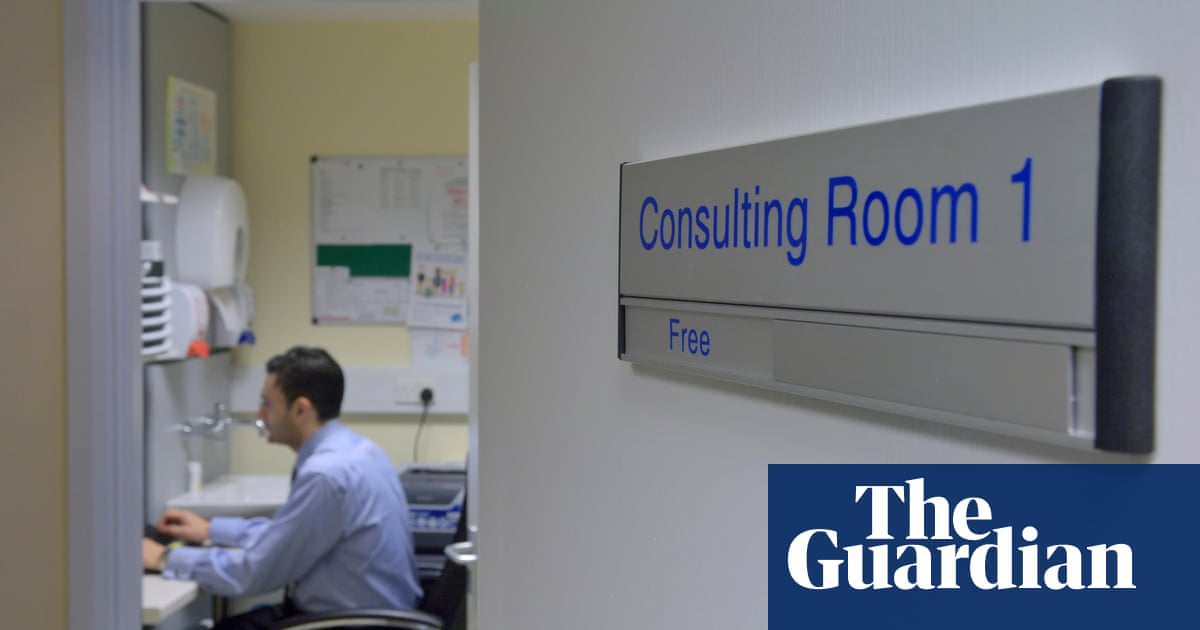Patients’ satisfaction with GP services has collapsed in recent years as family doctors have switched to providing far fewer face-to-face appointments, new research has revealed.
The proportion of patients seeing a GP in person has plummeted from more than four-fifths (80.7%) in 2019 to just under two-thirds (66.2%) last year.
Telephone appointments have almost doubled over the same period from 13.4% to 25.4%. Those undertaken by video or online, including some in which patients fill in an online form but have no direct interaction with a GP, have risen almost eightfold from 0.6% to 4.6%.
The Institute for Government (IFG) thinktank also found patients valued face-to-face appointments so highly that they regarded them as more important than their GP surgery offering more appointments overall by maximising the number provided remotely.
They are more satisfied with practices that offer more in-person sessions, and less satisfied with those relying more on telephone and remote consultations, even though those freeGPsup to see more patients.
The dramatic shift in how family doctors interact with patients has coincided with a huge fall in public satisfaction with GP services.
“Patient satisfaction is higher in practices that deliver more of their appointments face to face,” according to an IFG report tracking the performance of England’s 6,200 GP surgeries since 2019. Surgeries that offer the most remote appointments have experienced the biggest falls in satisfaction, the IFG analysis shows.
Practices where in-person appointments remain common are also better at managing diseases such as asthma and diabetes, managing smoking and obesity, and providing check-ups to spot illness early, such as health screening and blood pressure checks, the thinktank found.
Remote ways of providing care to patients that became commonplace as Covid-19 hit in 2020, which were widely thought at the time to be temporary, have become established ways of doing so at many GP surgeries, even though patients prefer traditional face-to-face appointments.
Surveyshave foundthat patients’ satisfaction with GP services has fallen dramatically over recent years. Only 31% of people in Britain are satisfied with GP services, and just 23% with GP waiting times, the recent British Social Attitudes survey found.
Silver Voices, a not-for-profit campaign group for over-60s, said GP care should not be reduced to “intermittent telephone conversations” and that the lack of face-to-face appointments undermined Wes Streeting’s repeated pledge to “bring back the family doctor”.
Dennis Reed, the group’s director, said: “Older patients are particularly affected by more remote consultations as we are more likely to be living with multiple conditions which require personal examination, rather than the need to just treat immediate symptoms.
“Many older patients are also uncomfortable about discussing intimate issues remotely, and the risks of misdiagnosis therefore increases.”
Ministers should legislate to give patients a legal right to an in-person appointment, he said.
GP leaders responded to the IFG’s conclusions by stressing that surgeries were so overstretched that remote appointments were needed to help them keep up with the growing demand for care.
Prof Kamila Hawthorne, the chair of the Royal College of GPs, said: “We recognise that many patients want to see their GP face to face and the majority of GP appointments are carried out face to face – 64% in February. However, we also know that many patients appreciate the convenience of remote appointments, which can be delivered safely and securely with virtual technologies or over the phone.
“The unfortunate reality is that general practice today is totally overstretched. Patient need for GP care and services continues to outstrip resources following years of neglect and underfunding by successive governments.
“GPs and our teams are now delivering more appointments than ever before – 367m last year, more than a million per day – but with just a handful of more qualified GPs than in 2019.”
Stuart Hoddinott, a senior researcher at the IFG and co-author of the Nuffield Foundation-funded report, said the relentless demand for care and shortage of GPs meant patients should not expect in-person appointments to return to pre-Covid levels.
He said: “The pandemic-era shift to providing many more appointments remotely can explain some – though not all – of the collapse in patient satisfaction.
“Although patients, especially those over 65, seem to prefer face-to-face appointments overall, the need to deliver ever more appointments to cope with demand in the system makes a return to pre-pandemic levels of face-to-face appointments unlikely.”
The report, which was based on analysis of a range of official data about GP services, also found that:
There are too few full-time GPs for the health secretary to fulfil his promise to “bring back the family doctor”, and that is unlikely to change in the years ahead.
The government’s policy of pushing GPs to offer more appointments may not be “wise” because GPs will respond by providing more remotely – which patients dislike.
GP appointment times will need to be extended from 10 to 15 minutes if Streeting is to deliver his pledge to shift theNHSfrom a treatment to much more of an illness prevention service.
If GPs shift to being more preventive in their work, that might reduce the number of appointments they can offer, because patients will need more time to discuss their health.
The Department ofHealthand Social Care insisted that patients who wanted an in-person consultation should get one.
A spokesperson said: “GP services are buckling after years of neglect but through our plan for change, we are working with GPs to fix the front door of the NHS and bring back the family doctor. By cutting red tape and investing more in our NHS, we have recruited more than 1,500 GPs to deliver more appointments.
“This government is also clear that patients should have access to health and care when they need it and people who prefer a face-to-face appointment should have one.”
